Overview
Publications
Recruitment
Intranet
CIFRI Corners'
ICAR-CIFRI, Regional Centre, Guwahati developed protocols for culture-based fisheries (CBF) and pen culture technology for floodplain wetlands (beels) of Northeast India.As part of outreach activities initiated by ICAR-CIFRI under leadership of Dr. B. K. Das, Director, ICAR-CIFRI, Barrackporeand guidance of Dr. J. K. Jena, DDG (Fy. Sc.), ICAR, New Delhi under NEH Component, the Institute demonstrated culture-based fisheries (CBF) and pen culture in Bamunibeel(N 26º 18' 91'' and E 91º 45' 60''), KamrupRural district, Assam.For the purpose, a field survey was conducted by the Scientists of ICAR-CIFRI Regional Centre, Guwahati on 02/12/2019 in the beel and interacted with the beelfishers belonging to Bodo tribal community.
Bamunibeel is a closed floodplain wetland of lower Brahmaputra valley. It is a small beel having 16 ha water spread area and is roughly oval in shape. The water depth in the beel is 2.5-3.7 m in monsoon which gets reduced to1.5-2.5 m during winter making it suitable for both pen culture and CBF. A total of 65 plain tribals(Bodo) households of Bamunigaon village under Bezera Development Block depend on the beel for meeting their nutritional and livelihood needs. Prior to 2006-07, the beel supported purely capture fisheries and was annually leased to private parties for quite low amounts (Rs. 15,000-20,000/- per month). A periphery bundh around the beelwas constructed by ARIAS Society, Govt. of Assam during 2006-07 under World Bank funded ARIAS project, which was further strengthened under AACP project of ARIAS Societyduring 2011-12. Little or no supplementary stocking was practiced in the beel, resulting in low fish production (approximately 6.29 tonnes) and modest net annual income to the community members (@ Rs17,692 per household) during 2019-20.
The beel was selected to demonstrate CBFand pen culture through community participation to increase income of the local tribal fisher families.The programme was executed by Dr. B.K. Bhattacharjya, PS &Head; Mr. A. K. Yadav, Dr. Pronob Dasand Dr. S. Borah, Scientists of ICAR-CIFRI Regional Centre, Guwahati after conducting awareness programmes(2 no.) on the subject followed by supplementary fish seed stocking programmein the beel proper on 19th October, 2020 and pen culture using CIFRI-HDPE pens on 23rd February, 2021.The Institute stocked a total of 48,000 no. advanced fish fingerlings (@3000 no. per ha) comprising of Indian major carps, minor carps and exotic carps in the beelfor CBFin consultation with the local community. CIFRI-HDPE pens (3000m2area) installed in the beel were stocked with carp fingerlings (@ 3-9no. per m3) and fed with CIFRI-CageGrow floating feed (28% crude protein) for production of table fish as additional income. The fisher community under the banner of BamuniBeel Development Committee (BBDC) followed the technical guidance provided by ICAR-CIFRI. Fishes were reared for a period of 6 months in the pens. Bigger sized fishes were harvested on 7th September, 2021 and smaller fishes were released in thebeel proper. The majorharvest of fishes from the beelwasdoneduring 12-13 January, 2022 and sold on the occasion of MaghBihu(Assamese community festival) for getting good price (average Rs. 230 per kg). A total of 13.52 tonnes of fishes were harvested and sold from the beel during 2021-22 (till date). All the 65 Bodo tribal fisher families of the village received an annual net income of Rs. 44,763 per family. The successful adoption of CBFand pen culture thus led to 117% increase in total fish production and 153% increase in net income of the local tribal fishers compared to 2019-20.
The local tribal community led by Mr. Mohan Swargiary, Presidentand Mr. Bolin Boro, Secretary ofBBDCexpressed their happiness with the enhanced income and promised to continue to practice CBFincluding pen culture to enhance their income and livelihood.
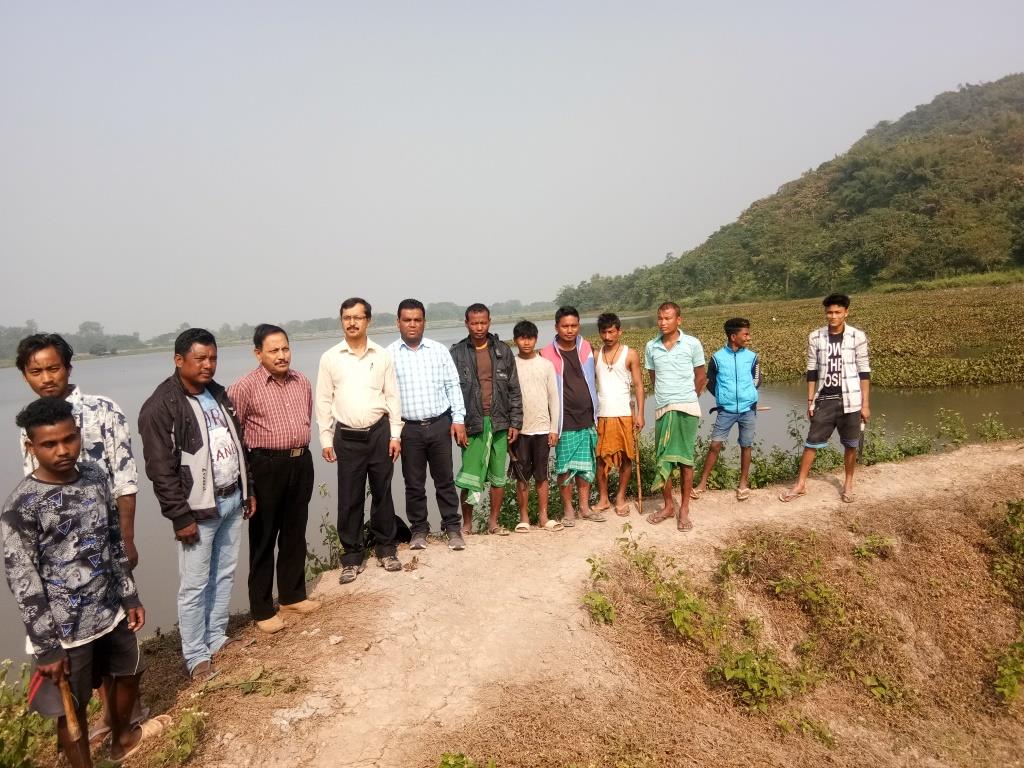
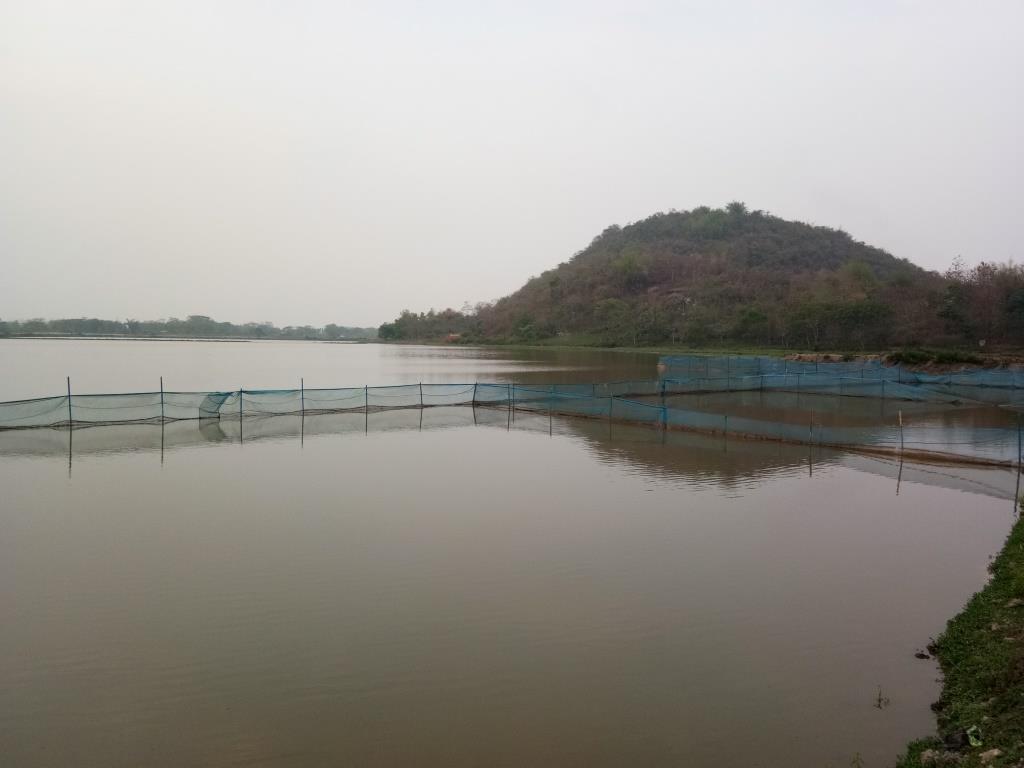
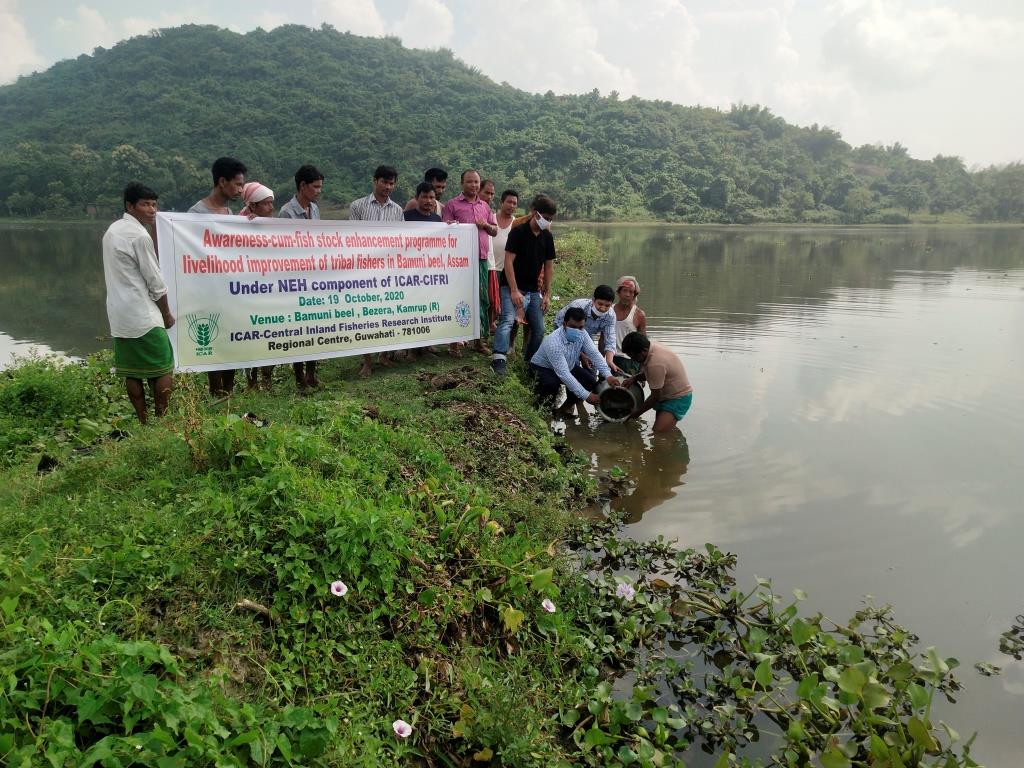
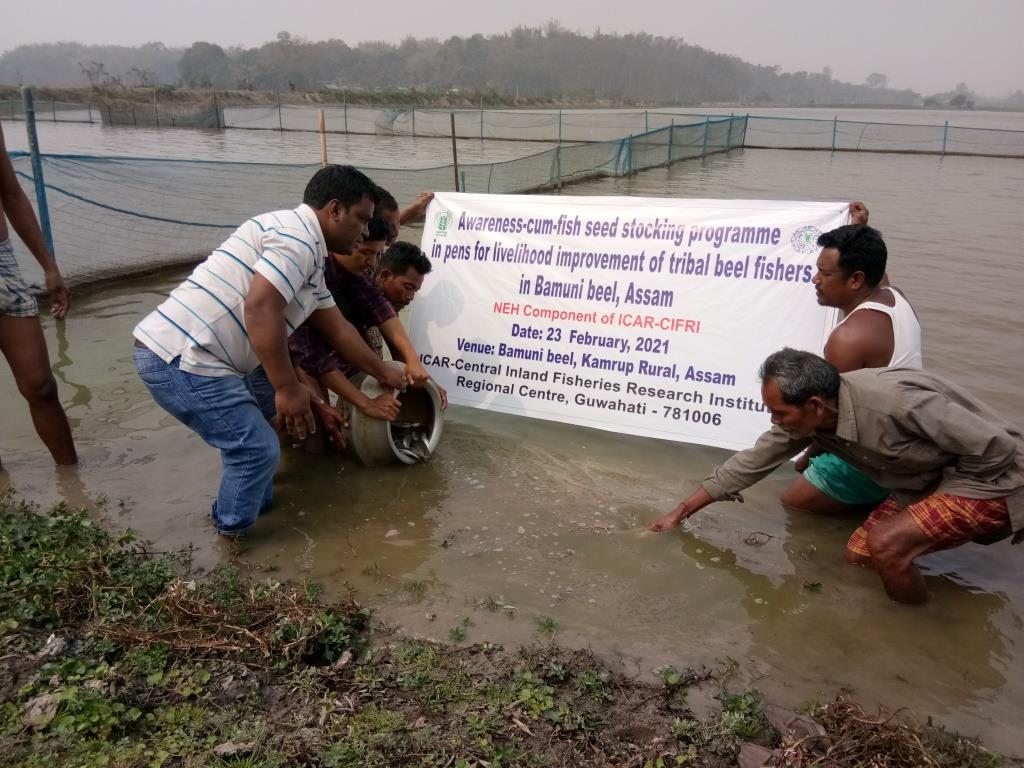
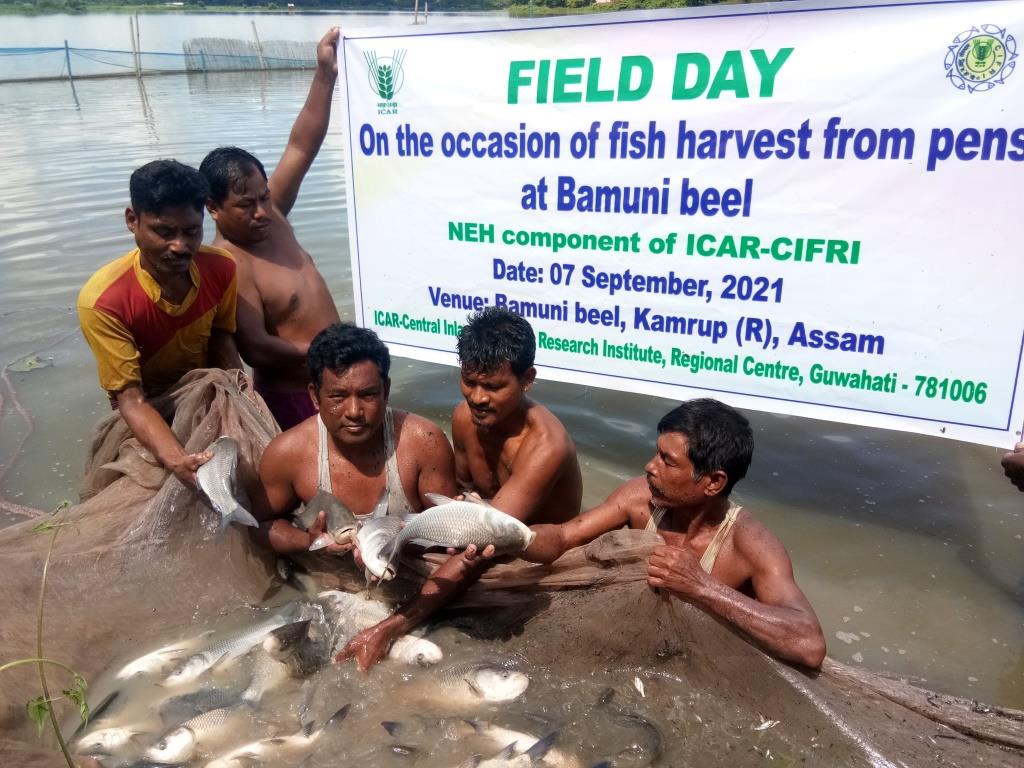
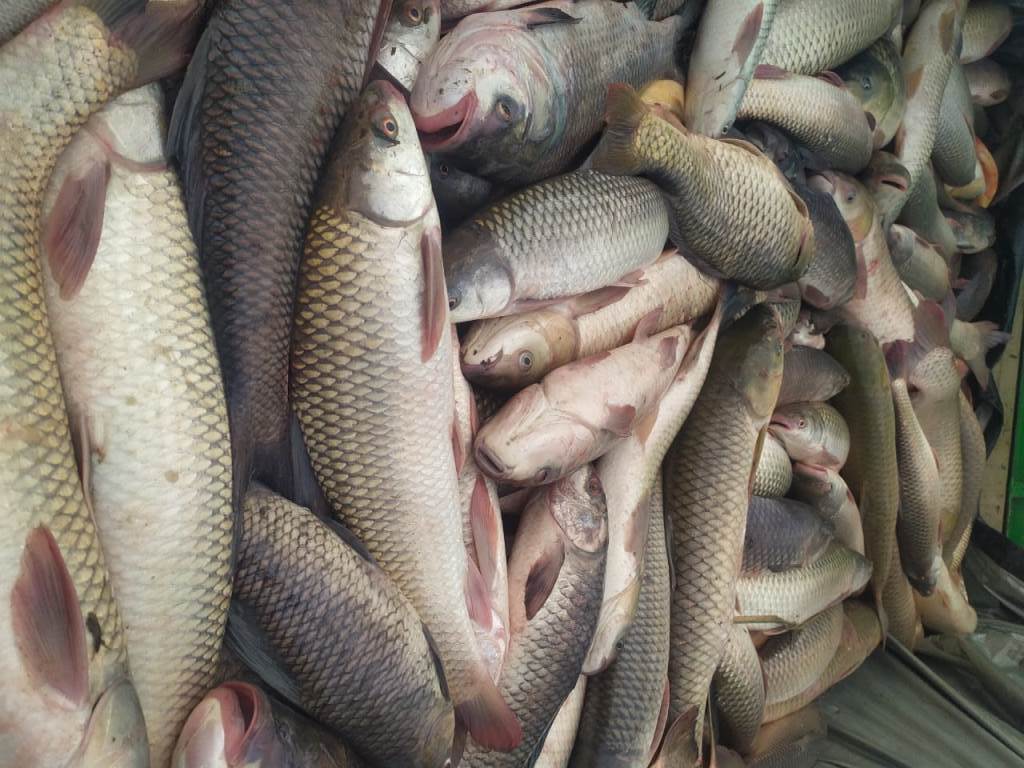
Updated on 21/01/2022










